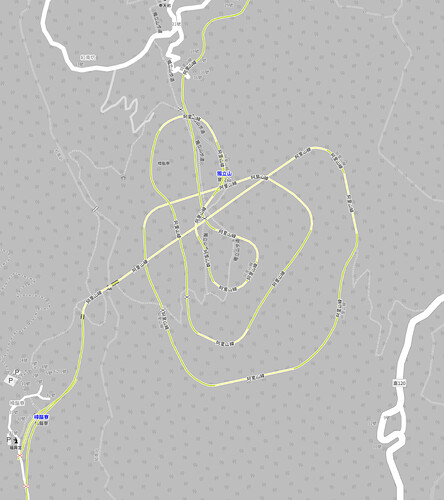In the linked essay, I mention Nancy Mace’s standard TERF question, asked most recently to Tim Walz: “What is a woman?”
My answer is simple. A woman is not a what. A woman is a who.
I want to expand a bit from the essay on what I think this matters.
Must have gotten a lot of positive feedback, to already have expanded that!
Understandable. If the regime falls without prominent US involvement, then all those decades of hostilities will have been for nothing.
(See also: Cuba, sooner or later)

… One of them earned a Guinness World Record for travelling the “world’s longest railway spiral”. The start and end of the Dulishan Spiral are only 570m apart, but an elevation difference of 233m means trains traveling on this stretch must negotiate 5km of twisting track to cover what would be a 570m straight-line distance.
I found it. Here is the Dulishan Spiral mapped out.
Kristi Noem was just taken by ambulance to a hospital. An “allergic reaction” of some sort. Interesting.
Google for updates.
I see what ye did there.
I do wish we had thorn; it’d be nice to distinguish the pronunciation of e.g. “the” from “Thailand”. As in “Man, I do love visiting þe markets in Chiang Mai, Thailand!”
There’s a word in Beowulf: misthleoþum, which is the dative plural of misthliþ, and the first time I read it I thought it had two fricatives in it, until I realised what I was looking at.
It’s a compound of mist (which still means the same thing today) and hliþ: “a slope, a hillside”.
The “th” fricative in modern English is borrowed from the Latin spelling, which they only used in borrowed words, usually from Greek, where th is the Latin transliteration of θ, because when the Romans first encountered the Greeks, theta was an aspirate, pronounced /tʰ/, so the Romans wrote it like they heard it: th, like they did for ch for chi and ph for phi. Then the pronunciation of the Greek changed so it became lenited to a fricative, but the Roman spelling stayed in their transliteration.
I wasn’t clear on the exact meaning of a fricative, so I looked it up on teh wikis.
After reading a bit and falling down a couple linguistic rabbit-holes: man, do I love all the creative ways humans have come up with to communicate by squirting air through their face-meat!
There’s nothing quite like slapping slabs of your face-meat together while blowing through it to get a message across, is there?

Botox can spread beyond the injection site, potentially causing botulism-like symptoms such as muscle weakness, fatigue, double vision, drooping eyelids, urinary incontinence, hoarse voice, and difficulty speaking or swallowing!
Well actually…
þ (thorn) is a voiceless fricative*. There is another letter we have replaced with “th”, ð (eth) which is a voiced fricative.The difference is that unvoiced letters do not use the vocal cords (thick, thin, think) while voiced ones do (this, that, these, those). You can feel the vibration in your throat when pronouncing voiced letters.
*All right, all right, a voiceless alveolar fricative. I’m trying to keep things simple here.
(I miss my pedant’s pendant. Can we bring it back?)
You have pretty much described the Welsh letter “ll”.


